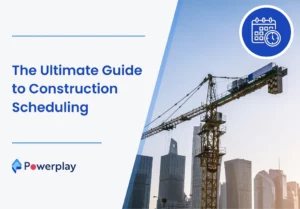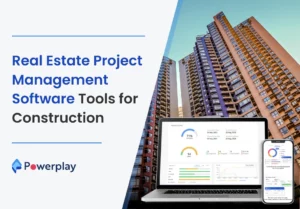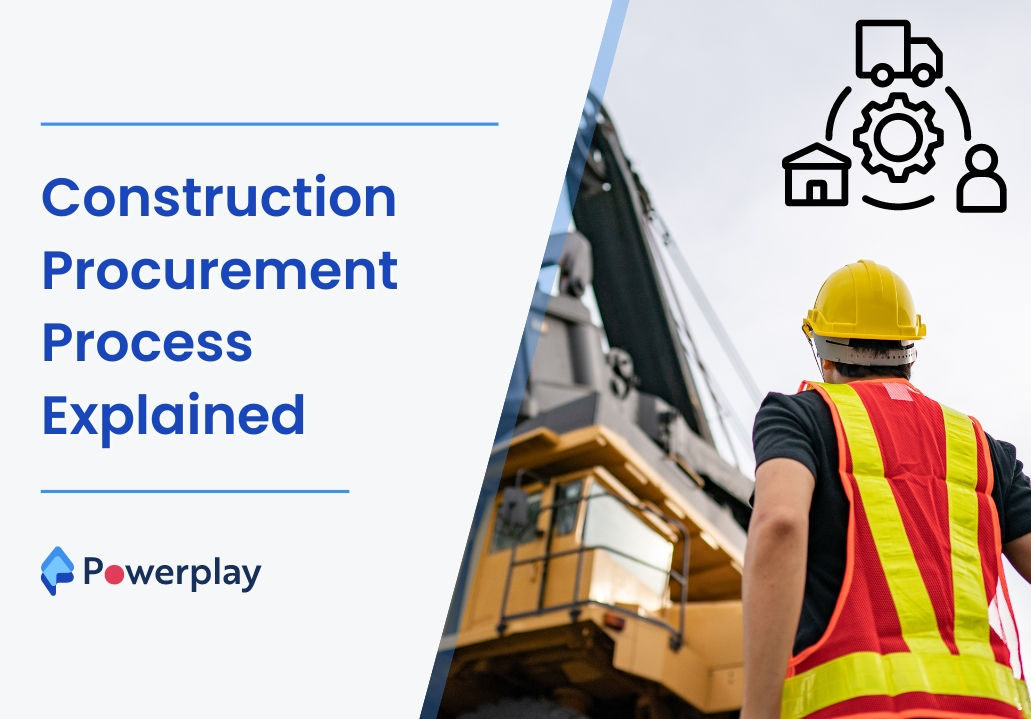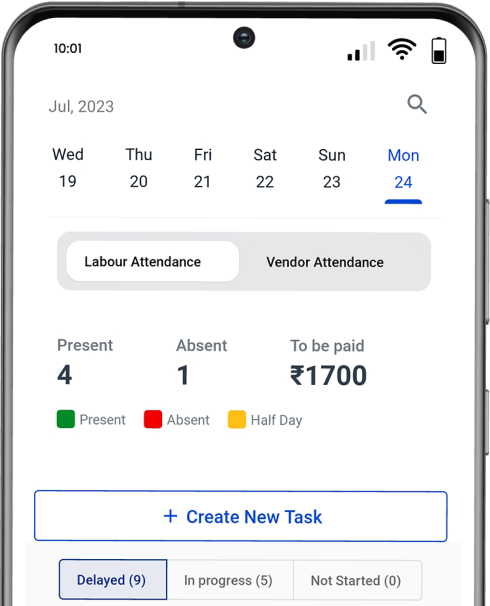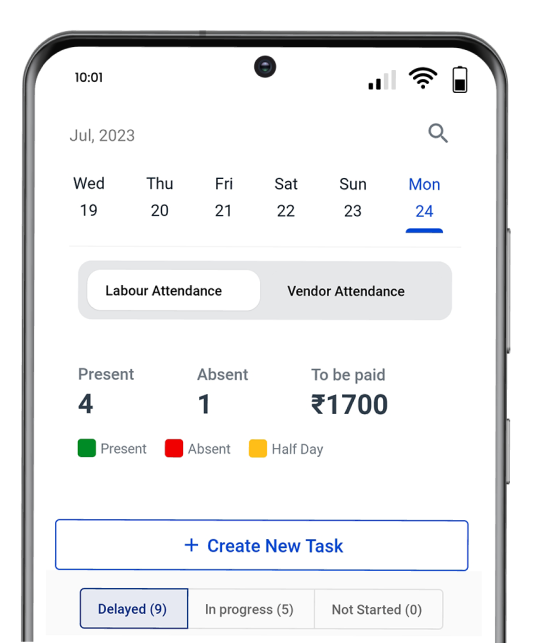What are the 5 types of Construction contracts?
-
Kumar Abhishek Anand
- October 23, 2023
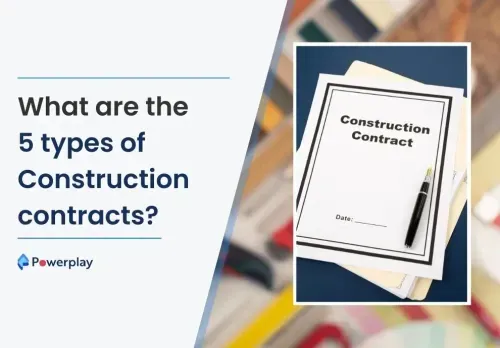
There are many types of contracts available to suit the needs of all parties, as no two construction projects will be exactly alike. Owners, contractors, and suppliers can determine which contract is best for their project to manage risk and ensure that payment and work go smoothly.
This article will discuss the five main types of construction contracts.
These are the 5 most important types of construction contracts:
1. Lump sum contracts
2. Contracts for time and materials
3. Cost-Plus contracts
4. Unit price contracts
5. GMP contracts
1. Lump sum contracts
Fixed-price contracts are also known as lump-sum contracts. They are the most basic form of construction contracts. Because they have a fixed price for all work, lump-sum contracts are the most basic type of construction contract.
Construction firms are very familiar with lump-sum contracts. Most contractors will have signed multiple lump-sum contracts at one time or another.
Lump-sum contracts, however, are not as straightforward as they seem. These are some of the key benefits and drawbacks of lump-sum contracts.
Pros of a lump sum
p1. Bidding is easier when lump-sum contracts are used. Owners and GCs will find it easier to select the right price by naming it a total price rather than submitting multiple bids.
p2. High-profit margins are possible when you finish a project under budget. You can save money by finishing the project under budget because the price is fixed.
Cons of the lump sum
c1. Miscalculations destroy margins. It would be best to account for all variables when drafting a lump-sum contract. Unexpected setbacks and changes in a project can directly impact your profit margin.
c2. There is more risk for failure the larger the project. There is no margin for error when working with suppliers and sub-tiers. You pay the lump sum price for those sub-tiers mistakes and setbacks.
Contractors are exposed to many risks when lump-sum contracts don’t consider unexpected costs and delays. You can lose money or make less money if you make mistakes.
Thus lump sum contracts work best for smaller projects that have predictable scopes.
2. Contracts for time and materials
Time and materials (T&M), not lump-sum contracts, work well for projects where the scope of work may not be clearly defined. Time and materials contracts pay contractors for materials costs and set an hourly or daily pay rate.
Pros of T&M
p1. Contracts for time and materials are flexible. The contractor covers unexpected delays, roadblocks, or other changes to the scope and reimburses the customer for materials costs and pays an hourly wage.
p2. Simple negotiations can be done with time and materials contracts. Time and materials contracts make it easy to establish rules about what materials will be covered and what the hourly wages will be.
Cons of T&M
c1. It isn’t easy to track time and materials. It is not easy to log every material cost associated with a project. Failure to provide accurate numbers upon completion will result in lower profit margins, allowing you to spend less time on the actual work and more time crunching numbers.
c2. Efficiency is not rewarded. Time and materials contracts don’t pay per hour, so there is no incentive to complete a project on time. It is common to offer a bonus if you finish a project ahead of schedule.
The unpredictable nature of any construction project means that the owner is responsible for a lot of the risk associated with their time and materials contracts. They are required to reimburse the contractor for any unexpected costs or changes that occur during the project. This can result in them spending more than they originally planned.
Cost-Plus contracts
Cost-plus contracts, also known as cost-reimbursement contracts or cost-reimbursement agreements, are where the owner pays the contractor for all costs incurred during the project. Plus, the contractor can make a set amount of profit which a percentage can calculate.
Cost-plus contracts may cover direct costs, i.e., direct labour and materials, indirect costs (i.e., office space, travel and communication expenses) and profit (i.e., the agreed-upon fee or markup).
Pros of cost-plus
p1. Flexible cost-plus contracts can be arranged. Cost-plus contracts let owners make design changes as needed. Contractors know that they will be compensated for any extra time or materials.
p2. Miscalculations don’t have to be catastrophic. Inaccuracies in cost-plus contracts don’t have the same impact as with lump-sum contracts.
Cons of cost-plus
c1. It can be not easy to justify some costs. Contractors must justify costs for a project under cost-plus contracts. Owners may be reluctant to reimburse indirect costs such as mileage and administrative expenses that can sometimes be difficult to account for.
c2. Contractors can be in trouble if they have to pay for materials. Cost-plus contracts work through reimbursement. If you pay more for materials than expected, you could be left with no funds for the rest of the project.
The owner is responsible for the majority of risk in cost-plus contracts. The contractor is responsible for all costs and any unexpected expenses. Cost-plus contracts work best for projects that require a lot more creativity.
Unit price contracts
Unit price contracts divide the work required for a project into distinct units. These are also called measurement contracts, measure-and-pay contracts, and remeasurement agreements. Instead of estimating the entire project, the contractor gives the owner price estimates for each unit.
Unit price contracts can be useful in projects where the work is repetitive and heavily dependent on materials costs. The amount of work required is not known before the project begins.
Pros of unit price
p1. Invoicing is simplified with unit price contracts. Unit price contracts provide greater transparency. Because each unit’s price is predetermined, owners can easily see all costs. This prevents disputes and arguments when it comes time to pay.
p2. The profit margin will not change if more work is needed. Any additional work required is added to an existing unit. This makes it easier to manage change orders or other modifications to the scope of work.
Cons of unit price
c1. It can be difficult to predict the contract’s final value. It is not always possible to predict the final cost of a project. Owners may end up paying more than they anticipated.
c2. Remeasurement can delay payment. Remeasurement is when the owner can compare the cost of each unit to the total project cost. This can delay payment. We all should strive for transparency, but this might be something you’d like to think about.
The owner is responsible for the cost of any unanticipated units. However, the transparency that they provide is hugely beneficial to all parties.
GMP contracts
Contracts with a guaranteed maximum price (GMP) limit the contract price. This type of contract guarantees that the property owner will not exceed the contract price. The contractor should pay for labour or material costs exceeding the contract price.
GMP provisions may be included in other types of construction contracts. For example, a cost-plus contract might include a clause limiting total expenses to a maximum price.
Construction contracts often include guaranteed maximum prices. Therefore, they are best suited for projects that have few unknowns. For example, a retail chain could be built using plans that have been repeatedly used.
Pros of GMP
p1. GMP contracts allow for faster projects. A final contract price speeds up the bidding process and makes it easier to finance projects. Lenders know how much a project will cost before the project begins.
p2. GMP contracts encourage savings. Fixed overhead costs encourage contractors to cut costs and complete work on time. Owners often agree to share costs with contractors.
Cons of GMP
c1. GMP contracts pose a risk to contractors. GMP contracts place risk on contractors.
c2. GMP contracts may take longer to negotiate and review. Contractors may increase the contract’s maximum price to avoid exceeding the price cap. This can cause the negotiation process to be longer and make it more difficult for the project to begin.
Guaranteed price contracts transfer much risk to contractors because the owner will not pay for cost overruns. However, contractors can reduce the risk by using cost estimation software. A solid estimate can help contractors minimize risk and avoid under-charging the owner.
Share
Kumar is a digital content professional with more than 2 years of experience in Blog writing, copywriting and scripting. His passion lies in the art of creating convincing content that plays a major role in converting leads for SAAS businesses.
